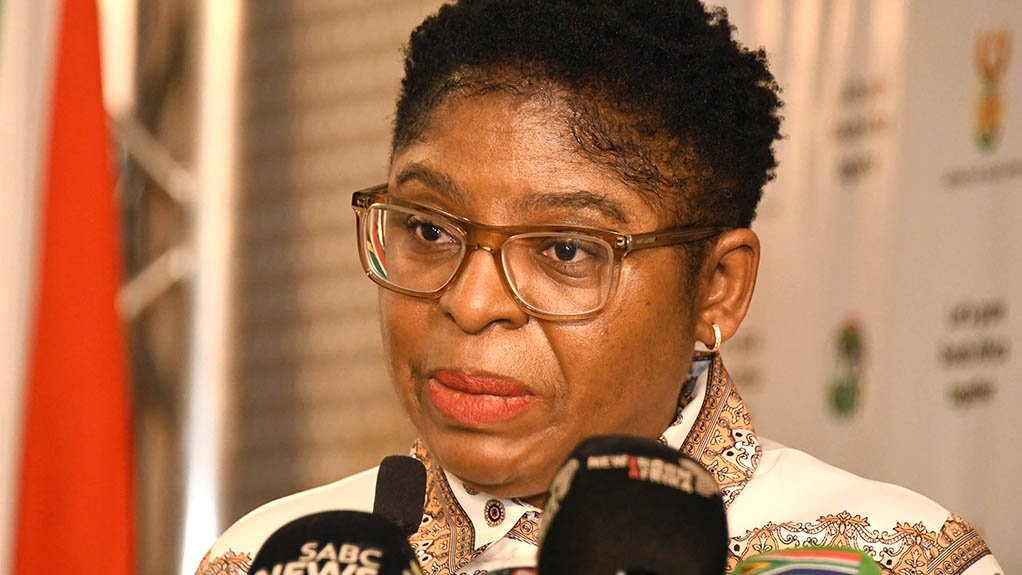Minister in the Presidency Khumbudzo Ntshavheni, who last week accused the private sector of engineering the state’s collapse, has now turned her ire to the media, saying its criticism of her comments was systemic of "male chauvinism" in the industry.
"(We) are all aware that those who are thin on content opt to play the man and not the ball. But you can call me any name if it makes you sleep at night, I am not bothered," she wrote in an opinion piece carried by BusinessLive.
"The notion that on my own I cannot express a view except when that view is sponsored by the president simply confirms the male chauvinism is bedevilling the media.
"It is a reflection of a society that fuels gender-based violence because women, in particular the younger ones, must be put in their place, and thus editors do not even feel ashamed to refer to a minister as a child or as a mere mouthpiece of a male president."
At a post-Cabinet briefing covered by News24 last week, Ntshavheni was asked about a long-standing probe into rand manipulation that involves 28 banks. This followed UK bank Standard Chartered acknowledging its role, saying it would pay a R42.7-million fine, and provide evidence against other market players.
"We have maintained over the period that the performance of the rand and sometimes the performance of the economy has been manipulated by [the] private sector, [which] has no interest in the development of this country," Ntshavheni said, adding that the private sector continued to "engineer and do machinations to ensure the government collapses".
The comments caused a furore, with business leaders taking umbrage.
"We have a partnership with the government that is led by President [Cyril] Ramaphosa, of which she is aware. It's just not true that we are not interested in the future of SA or that we want to collapse the government. We hope that she can reconsider her comments. So we will raise it with government through the partnership," Business Unity CEO Cas Coovadia said, according to News24.
Ntshavheni said in her BusinessLive opinion piece that she is the "first to acknowledge the active contribution of the private sector under the CEO Initiative to resolve the country’s electricity crisis". She also mentions, that the initiative is addressing the freight and logistics crises as well.
Ntshavheni mentions several government successes, arguing that "the narrative that seeks to project a continuously weakening state capacity is not supported by the facts."
"Data shows how the governing party has fulfilled its promise of a better life for all. We have achieved significant progress in addressing historical inequalities, despite the many challenges still facing our people, and this was not coincidental."
South Africa ranks as the most unequal country in the world, according to World Bank data. The World Inequality Report 2022 found that since the end of apartheid, extreme economic inequalities "have persisted and been exacerbated". A tenth of the population earned 67% of the income in 2021 – a metric that has worsened since 1994.
The ANC-led government is under pressure ahead of the 2024 elections amid an electricity and rail crisis that derailed the economy. From almost 70% national support in 2004, its share of voters may drop below 50% for the first time next year.
EMAIL THIS ARTICLE SAVE THIS ARTICLE
To subscribe email subscriptions@creamermedia.co.za or click here
To advertise email advertising@creamermedia.co.za or click here











